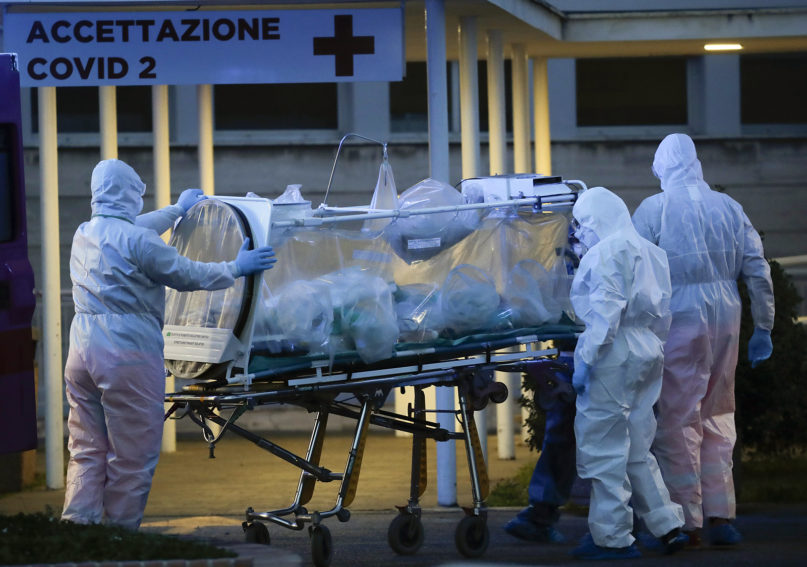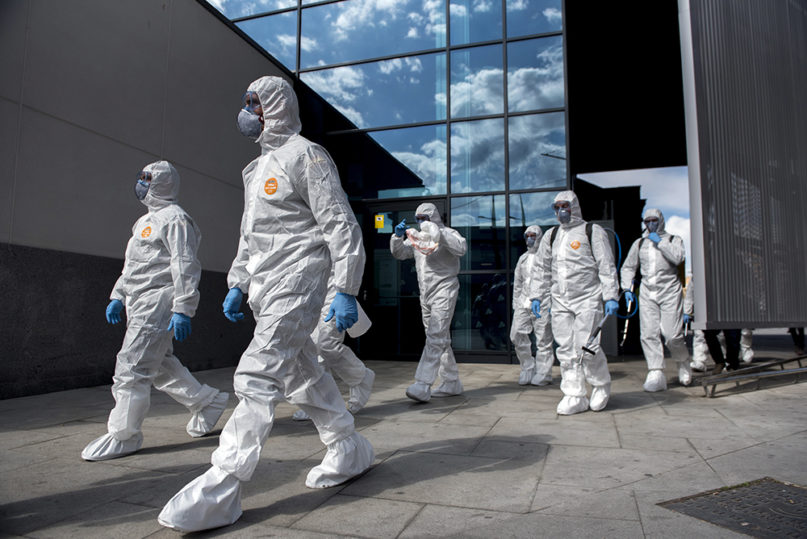(RNS) — One of my favorite pieces of wisdom comes from Fyodor Dostoevsky. It’s a phrase echoed throughout his novel “The Brothers Karamazov,” first elucidated by an elderly, saintly Orthodox priest named Father Zosima: We are all responsible to one another for everything.
It is not merely a moral directive but also a statement of truth. We cannot live; we cannot act; we cannot be in the world without each moment, each decision, producing a ripple effect that directly impacts the lives of those around us.
It is a truth at once profound and terrifying: There is no action that we can take on its own terms. Our decisions determine the lives — the physical health, the economic stability and the moral character — of those around us. The purchases we make, the values we espouse publicly and privately alike, the words we choose when we speak to our friends or colleagues or loved ones, the offhand comments we make in public — all these are not individual decisions. They are decisions that directly impact both those with whom we are in physical contact, and impact too those whom we do not see.
A casual, cruel comment about women’s bodies made on public transportation and overheard by a child who grows up shaped by a sexist worldview. A decision to buy goods on Amazon, where it’s cheaper and more convenient, that helps to put a locally owned store out of business. A decision to go in to work while sick — and perhaps infect a stranger with a deadly disease.
One of the unintended consequences of the spread of coronavirus around the world, and the subsequent lockdowns in many afflicted countries, is that it puts the lie to the notion, ever more appealing in the age of the disembodied internet, that we are fully autonomous creatures, who are obligated to do little more than observe the nonaggression principle.
We are, for all our claims of self-sufficiency, fundamentally social and embodied creatures — whose selves are always in contact with other selves. To exist is to affect others — to be in the world can always be by itself a form of aggression (the case, for example, of someone knowingly going out in public while sick, prioritizing personal comfort over collective safety), or a form of benevolence.

A patient in a biocontainment unit is moved on a stretcher at the Columbus Covid 2 Hospital in Rome on March 16, 2020. The new Columbus Covid 2 Hospital, an area fully dedicated to the COVID-19 cases at the Gemelli University Polyclinic, opened with 21 new ICU units and 32 new beds, in order to support the regional health authorities in trying to contain the pandemic. (AP Photo/Alessandra Tarantino)
Italians — known for the characteristic national quality of furbizia, or slyness when getting around bureaucratic rules — are fully embracing the demands of the lockdown out of a commitment to jointly defeating the virus together, protecting the elderly and sick: society’s most vulnerable. They are, too, finding ways to be present for one another without bodily presence (one strange phenomenon of the Italian lockdown is the development of aural “flash mobs,” in which Italians who own musical instruments play them, from their respective homes, at an appointed time.)
The development of social media and other internet-enabled technologies — so often used to bolster images of human autonomy — are here and everywhere being used to foster collectiveness: to recognize that, while technology has allowed us to experience a life that is not purely constrained by our bodily presence, it has not reduced in us the need for human connection.
While my own community, New York, has not at the time of this writing been put under lockdown, I’ve watched the city become increasingly aware of its interconnectedness as more and more of us are asked to work from home, to cancel gigs, to stay indoors.
Friends of mine have offered to Venmo acquaintances whose livelihood is in the arts, to help support those whose largely freelance incomes have dried up in the wake of quarantine. Others have offered to virtually “drop in,” via Skype or FaceTime, on friends and community members experiencing mental health issues, for whom the isolation of quarantine would be otherwise intolerable.
Another friend, a musician, plans to livestream a concert in order to raise funds for performers left out of pocket by the crisis. These are, perhaps, small actions in the scheme of things, but they are also evidence of our consciousness of what we owe to one another.
They are, too, all the more painful by contrast to the political, economic and cultural underpinnings of American life: a culture, a health care system and a political regime defined by its conviction that we are only responsible for our own selves, our own lives, our own labor, a culture that pressures the sick to come into work rather than risk their jobs and their ability to provide for their families.
The past few weeks have put the lie to our illusions of self-sufficiency. We have always been responsible to one another for everything. We’re just noticing it now.






